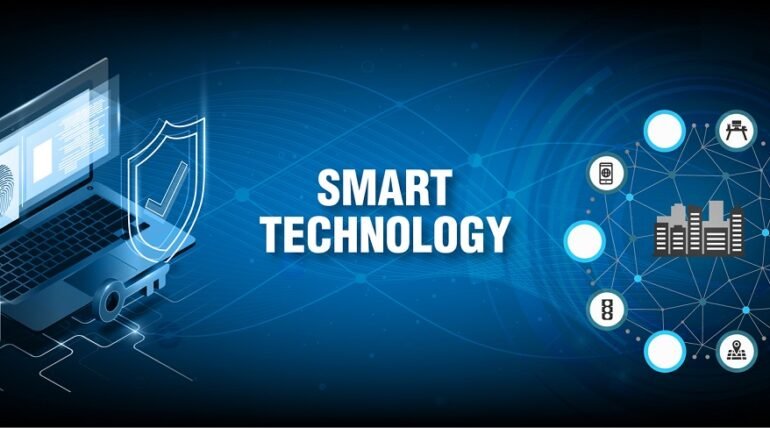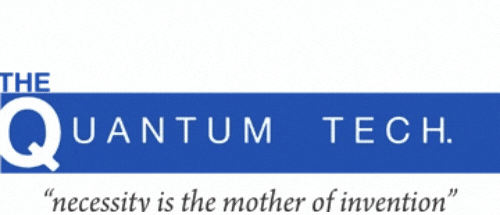
The rise of the 21st century brought a technological revolution that we are still flying on It today. Moving toward the fifth industrial revolution, we have become so used to the fast pace of innovation that we pursue more work efficient and effective technological solutions.
Coming accelerated on the heels of disruption conferred through the internet and smartphones, it’s now the turn of Artificial Intelligence (AI) and smart technology to change the next phase of global innovation.
Why?………
Well, because it’s changing the way we live, communicate, and work.
What is Smart Technology?
Pointing down the meaning for something as diverse as smart technology can be quite a difficult task given that the field of smart technology is developing at a relentless pace, making innovations outdated almost as swiftly as they crop up.
The word “SMART” refers to “self-monitoring, analysis and reporting technology.”
It is a technology that uses AI, machine learning and big data to bring forth the cognitive consciousness to objects that were considered as inanimate in past.
Examples of Smart Technology
As of now, smart technology can be divided into three kinds
1. Internet of Things (IoT) Devices
A network of devices that make use of different components like sensors, chips, software, online connectivity, analytics and applications to bring static physical objects to life. These devices create substantial value and they are futuristic, scale-able and automated. Some prominent examples include smart cities, smart factories.
2. Smart Connected Devices
Supervised through a remote and connected via wireless technology like the internet, Bluetooth or Wi-Fi, smart connected devices can offer a customised experience but have to handle given that they don’t transform to the extent IoT devices do. Smart cameras for security, smart electric bulbs, and smartphones are some examples of smart connected devices.
3. Smart Devices
With restricted automation, no need for internet connection, and programmable nature, smart devices, for instance, smart coffee makers, provide certain personalised services at a certain time.
5 Benefits of Smart Technology
Some of the key benefits of using smart technology are as follows:
1. Convenience
It is impossible to do so many tasks parallelly with minimized efforts, such as just using your voice, as it is today. This has become feasible due to smart technology. Whether it be tuning the lighting of a room, securing your home or ordering your favorite item online, smart technology is available at your beck and call. It takes comfort to the next level.
What’s even better is that the latest smart technologies are:
• Well-equipped to recognized everyone’s preferences by analysing them in order give you an automated, personalized service.
• Able sufficient to take into account outmost factors such as traffic and the condition of, for instance your vehicle or the nature to advise you in advance as well as guide you safely to your destiny.
2. Ensure Sustainability
With the drastic need to ‘go green’ and save planet Earth as well as steer clear of high energy costs, industrial and domestic sectors are trying hard to deploy smart technology.
Given that, more often than we do not optimise our use of energy and instead waste it by forgetting to switch off the domestic appliance, smart technologies can play a crucial role in saving energy
It can adjust and automate the use of energy, for example turning off or tuning lights, heating and colling appliances when they are not in use or when the necessary conditions have achieved. It saves money and on same time conserves energy, a true win-win.
3. Security
Smart technology offers more dependable security than traditional, manually operated security systems. Smart security devices such as door sensors, alarm systems, CCTV cameras and video doorbells help warn building the owners about the various threats to their property. Apart from warning the owners, law enforcement agencies are also informed, and protective measures such as blocking certain pathways or locking rooms.
Adding more to this, smart digital smoke, gas, water and sewerage leakage can only be detected but also the technology enables real-time preventive actions, potentially saving one from discomfort and even bodily harm.
4. Efficient
Smart technologies make use of data to understand how betterment can be made. It analyses what’s going on to be delivered for better results in the upcoming future. The entails that process and system become more effective and you as a person become more efficient.
Imagine running up exactly on time after having a peaceful sleep to find those distractions and leave for the office or some work on time.
5. Saves Money and Time
Energy bills can be saved by using smart technological appliances such as a smart thermostat, smart bulbs, remote power management, water heaters, washing machines and fridges as they can optimise the use of energy and in turn, use less of it to do more.
Smart technology automates monotonous tasks and eliminates loss or waste time.


